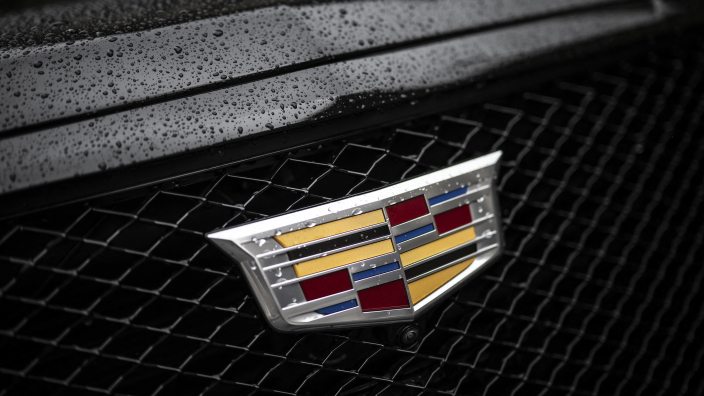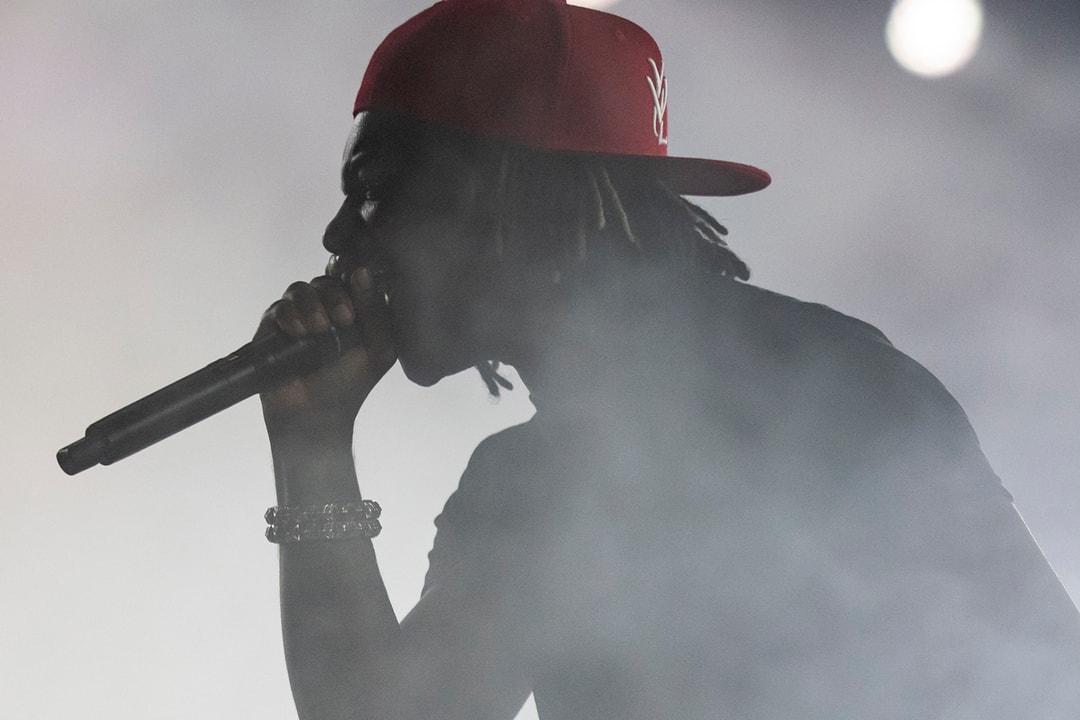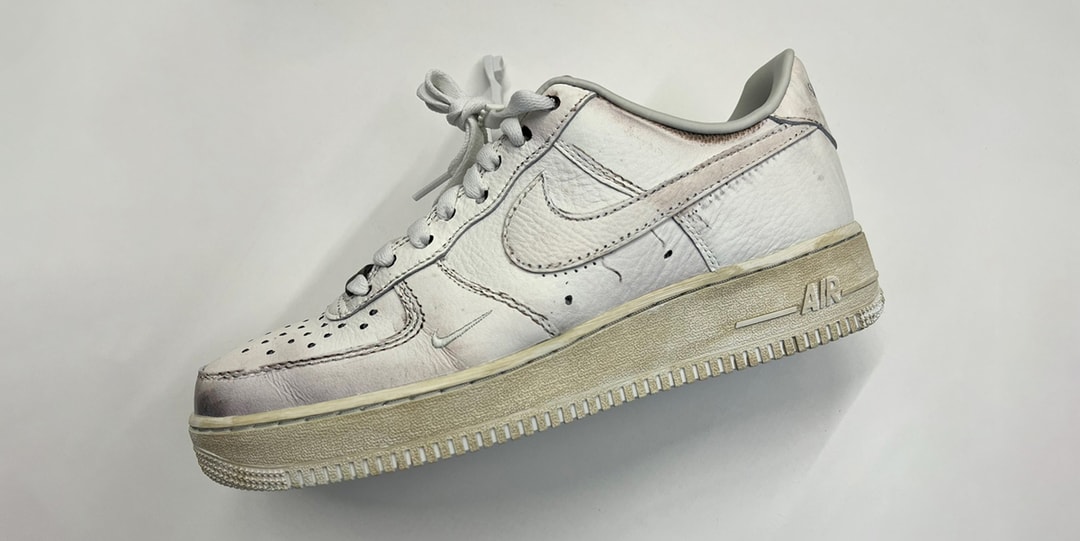Who’s Afraid of Gen Z’s Squeaky Clean, Backflipping Bro?
Benson Boone has charmed his way to the top—and that really seems to bother some people.

His bodysuit fitted as tight as a tourniquet, his little mustache pert and shampooed, the 22-year-old Benson Boone looked the part of the consummate Gen Z rock-and-roll heartthrob on the first night of this year’s Coachella music festival. He rushed around the stage while executing glass-shattering wails, belly-deep croons, backflips, front flips, and some more backflips. Yet as I watched the livestream three Fridays ago, I felt a slight sense of unease. Something in Boone’s face—a tightness around his saucer eyes, a droop in his beaming grin—suggested (and at first I thought I was projecting) nerves? Shame? Even anger?
After that performance, the source of the awkwardness suggested itself: Pop’s anointed next It Boy seems to be learning the limits of his charm in real time. On TikTok, Boone expressed frustration with the Coachella crowd for not cheering sufficiently for Brian May of Queen, who joined in during a cover of “Bohemian Rhapsody.” In a much-circulated review of the festival, Pitchfork’s Paul A. Thompson wrote, “Benson Boone is horrible, just godawful, the kind of act that makes you wonder if this whole medium has been worth it.” The next week, after his second Coachella set, Boone addressed his critics in another TikTok, writing, “If you hate me or my music at least have a good reason for it.”
Boone has been on a trajectory few musicians will ever experience. Last year, his single “Beautiful Things” was the most-streamed song in the world. He opened for Taylor Swift on the Eras tour, and at this year’s Grammys, he caused amazement by stripping off a tuxedo and somersaulting off a piano. The title of his forthcoming album, American Heart, whose cover features him baring his abs while draped in the star-spangled banner, suggests what he’s seeking to do: unite the country in admiration. But in these times of national confusion about masculinity, no happy-go-lucky dude with a mullet and a nice voice can exist for long without controversy.
Boone’s biography sounds like a suburban American fairy tale. Raised in a devout Mormon household in Monroe, Washington, he had no known affinity for singing. As a lark, he performed in a high-school battle of the bands his senior year (“All the girls are gonna be ours,” he later recalled thinking) and discovered, onstage, that he had American Idol–worthy pipes. He then indeed went on American Idol (audition judge Katy Perry predicted that he’d win the whole competition), but he quickly dropped out of the show, reasoning that he could find fame on his own terms. Dan Reynolds, the front man for Imagine Dragons, reached out to mentor Boone and, in October 2021, signed him to a record deal in partnership with Warner Records. Boone teased snippets of songs while pouting and posing on social media, racking up millions of views before ever releasing an album.
When that album, Fireworks & Rollerblades, arrived last year, it was both exuberant and generic. Boone and his producers followed a playbook similar to other 2020s youngsters such as Harry Styles and Sabrina Carpenter: blending soft-rock sounds from across decades, allowing the star’s personality to stand out against a familiar and comforting backdrop. That said, the music showed a notable amount of ambition. The songs tended to be multipart journeys, blossoming from piano-ballad lows to operatic highs. “Beautiful Things” is simpering and sentimental, but I have to give it credit. Every time I listen, the song still surprises me—the gloomy intro simply does not prophesy the sharp screaming that comes later.
What really makes Boone unique is a palpable mismatch between his musical style and his personal identity. Artistically, Boone’s most obvious influences are theatrical rockers of the 1970s and ’80s, especially Elton John and Queen’s Freddie Mercury. You sense their teachings in his octave-climbing vocals, his plodding-then-prancing tempos, and his sequined, chest-baring fashion. Of course, those two men were hard-partying queer misfits on a mission to blow mainstream minds. Boone, by contrast, is a girl-crazed jock who doesn’t drink or smoke. He writes songs about topics such as missing his late great-grandma and—as on “Beautiful Things”—being really grateful for the life he has. At last: glam rock about being normal.
[Read: Coachella defeated my cynicism about music festivals]
For anyone who romanticizes the idea of rock and roll as the sound of rebellion, the notion of a squeaky-clean TikTokker putting on a Freddie Mercury costume—as Boone did at Coachella, donning a replica of the singer’s royal cape—may seem like an abomination. But the campiest, most over-the-top music has, throughout history, also worked as sports-stadium pump-up music for the masses. (That’s probably why Donald Trump has so easily tractor-beamed Queen and the Village People into the MAGA songbook.) Really, Boone is not so much diluting the spandex-and-sequins tradition as he is trying to square it with a deeply flavorless moment for popular rock.
Up and down the Billboard Hot 100 right now, male-forward, guitar-based music is thriving. But to say rock is back isn’t quite right; the defining sound of the 2020s is a mega-genre that’s bland enough to include elements of country, classic rock, and sometimes even hip-hop. The most distinctive performers in this vein, such as Shaboozey and Teddy Swims, have become new stars. But the value of the music is generally its sense of anonymity; these songs are meant to stream in the background of school fundraisers and to soundtrack the social-media photo montages afterward. The trend seems like a counterpoint to the sauciness and spiciness of female pop stars such as Chappell Roan and Carpenter; it might also be tied to the “trad” turn in American culture. In any case, it encourages a familiar vision of masculinity: singing with gritty seriousness while wearing Carhartt.
Boone is offering a version of this sound—“Beautiful Things” is the ultimate photo-montage song—while adding a touch more flamboyance and drama, both sonically and visually. Delivering dutiful, utilitarian music with a dose of pizazz is helping make him into a name, voice, and face that people remember. But it also explains why portions of the audience read him as “off.” He’s slightly outside of settled identity categories and thus will be variously seen as trying too hard, acting too swishy, acting too bro-ish, whatever. Scroll through any hostile comments section—or read the infamous Pitchfork review—and you don’t see a lot of substantive critique of Boone. You just see that he bothers people. Boone’s TikTok addressed to his critics was desperate, baffled. He wrote, “I just read a comment that said ‘[I don’t even know] why I hate Benson Boone but it feels right.’ Like WHAT!!? how am I supposed to improve after reading that?”
My feedback for him would be to write more interesting music—though presentationally, I hope he sticks with the glam and acrobatics, because guys these days could stand to learn from it. For example: Mark Zuckerberg celebrated his wife’s 40th birthday by imitating Boone’s Grammy performance. The stunt was widely mocked as a rich man’s cringeworthy outpouring of vanity, but I sensed a plaintive undercurrent in Zuckerberg’s eagerness to squeeze himself into turquoise tights. The Facebook founder has recently challenged other tech magnates to cage matches and complained about the alleged feminization of corporate America. He’s clearly searching for some model of masculinity that would validate the worth of laptop professionals like him.
He’s not alone in that search: The sense that America’s boys are lost in transition, unsure about what male excellence really looks like, is leading the nation’s culture and politics down all sorts of strange corridors. We could do a lot worse than the Boone model—looking fine, doing tricks, and singing your lungs out, without threatening anything other than good taste.











































![Kyoto Hotel Refuses To Check In Israeli Tourist Without ‘War Crimes Declaration’ [Roundup]](https://viewfromthewing.com/wp-content/uploads/2025/04/war-crimes-declaration.jpeg?#)


![New Best Ever Bonus for Capital One Venture Card Available Through Referrals [YMMV]](https://boardingarea.com/wp-content/uploads/2025/04/6cbab7b59a0f3413c2a8f73cf771602a.png?#)

























